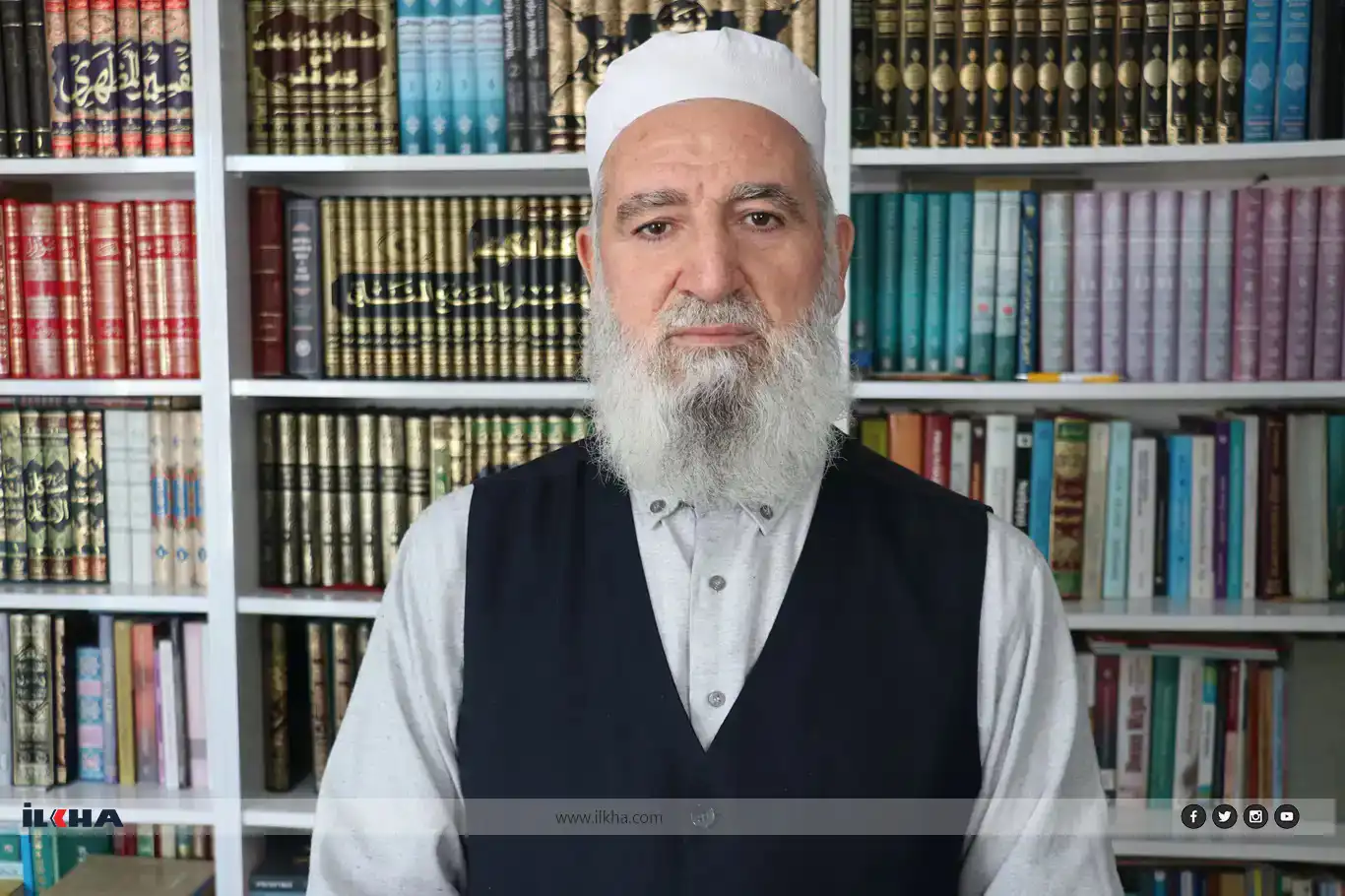Cemal Çınar: New Year's celebrations incompatible with Islamic values


Islamic scholar and researcher Cemal Çınar highlighted the religious and cultural dangers of celebrating New Year's Day, describing the practice as incompatible with Islamic principles and a serious threat to the faith.
Çınar, in his interview with ILKHA, warned that celebrating New Year's Eve has no religious significance for Muslims and is, in fact, a religious disaster that risks leading believers astray.
Çınar's views emphasize the importance of distinguishing between the practices of Muslims and those of non-Muslims, especially in the context of holidays and cultural traditions. He pointed out that New Year's Day, celebrated on January 1, is a deeply Christian custom that holds religious significance for Christians worldwide. According to Islamic teachings, believers should refrain from adopting the religious customs of non-Muslims, a principle underscored by the Prophet Muhammad’s advice to his followers during the time of Ashura. In this context, Çınar explained, the Prophet forbade Muslims from following Jewish practices, emphasizing that the adoption of religious practices not prescribed in Islam can lead to a societal shift away from Islamic values.
The scholar’s remarks draw attention to the dangers of "socially fulfilling the religious obligations of non-Muslims," which he believes could result in a serious disruption of the Islamic identity of a society. “While it may seem harmless, celebrating New Year's Eve or adopting its customs leads to a religious shift in the community,” Çınar stressed, noting that such practices could weaken the Muslim faith and lead to the erosion of Islamic traditions.
Drawing on the Qur'an and Hadith, Çınar further warned against efforts to imitate the customs of non-Muslim societies. He referenced the famous hadith, “Whoever imitates a people is one of them,” and emphasized that Muslims must maintain their distinct religious and cultural identity. He criticized the ongoing Westernization efforts, particularly through media and advertising, which have made New Year's Eve celebrations a norm in many Muslim-majority societies.
Çınar called for a collective Muslim resistance against this cultural invasion, urging Muslims not to be swayed by the influence of the West. He argued that just as Muslims do not associate Sunday with church, they should not associate January 1 with New Year's celebrations. "There is no need to create an Islamic alternative to this day. Muslims should simply remain indifferent to it," Çınar asserted, urging the Muslim community to reject any efforts to adapt Islamic practices to align with the Western concept of the New Year.
He also strongly criticized the commercialization of New Year’s celebrations, including the widespread promotion of Christmas trees, which he described as a pagan custom rather than a Christian one. For Çınar, the celebration of New Year's Eve goes beyond religious boundaries and signifies the importation of non-Islamic, even heathen, customs into Muslim societies—a process that he views as disastrous for the preservation of Islamic values.
As a solution, Çınar called on Islamic scholars, political leaders, and social activists to raise awareness about the harm caused by these celebrations. He emphasized that all sectors of society, including the media and political circles, should work together to ensure that the Muslim community remains steadfast in its religious identity and does not fall prey to the allure of foreign cultural practices.
In conclusion, Cemal Çınar's message is clear: New Year’s Day celebrations, with their foreign roots and secular nature, are not just culturally irrelevant to Muslims—they are a threat to the very fabric of Islamic society. As he emphasized, Muslims must resist these Western influences and stay true to the teachings of Islam, avoiding any celebration that goes against the core values and principles of their faith. (ILKHA)
LEGAL WARNING: All rights of the published news, photos and videos are reserved by İlke Haber Ajansı Basın Yayın San. Trade A.Ş. Under no circumstances can all or part of the news, photos and videos be used without a written contract or subscription.
A devastating fire broke out early Tuesday morning at Block 10 of the İSTOÇ Trade Center in Bağcılar, Istanbul, inflicting extensive damage on 17 businesses and causing millions of liras in financial losses.
Türkiye has officially welcomed the decision to close the Organization for Security and Co-operation in Europe (OSCE) Minsk Process and its related structures, describing it as a landmark step toward lasting peace between Azerbaijan and Armenia.
The Turkish Foreign Ministry has issued a statement expressing deep sorrow over the deadly earthquake that struck near the city of Jalalabad in Afghanistan on the night of August 31.
A heartfelt scene unfolded at Istanbul Airport on Sunday evening as the Hope Caravan Foundation delegation departed for Tunisia to join the Global Sumud Flotilla, a bold international civilian mission to break Israel’s illegal Gaza blockade.